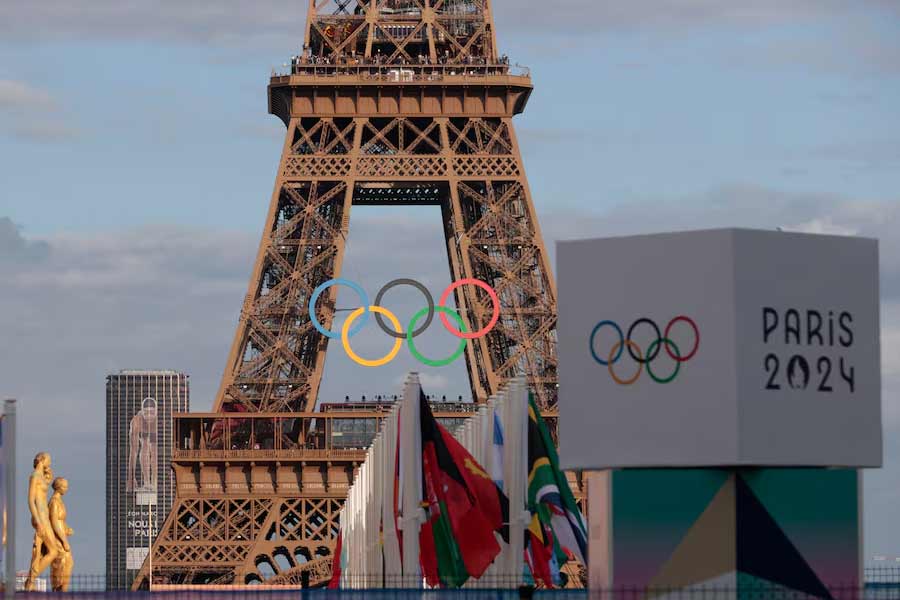The Olympics: Richer countries hosting the game winning the medals

Published :
Updated :

The Olympic Games have always been a symbol of global dominance and athletic supremacy for both sporting glories and economic power.
From its beginning in ancient Greece to today, the Olympics have always been hosted by economically strong nations.
The interrelation between a country’s economic solidity and its ability to host the Olympics is clear; wealthier nations with higher GDPs can bear the immense costs of this global event.
No poorer country has ever hosted the Olympics, and this is not by coincidence. The financial burden of arranging the Games is enormous, and only substantial financial resources can take on the challenge.
In 2024, Paris (France) hosted the Games with a GDP of $3.13 trillion, ranking 7th globally. Tokyo (Japan), which held the Olympics in 2020, had a GDP of $5.38 trillion, placing it 3rd. In 2016, Rio de Janeiro (Brazil) had a GDP of $1.8 trillion, ranked 9th. London (United Kingdom) hosted in 2012 with a GDP of $2.71 trillion, 5th in the world. Beijing (China) hosted in 2008 with a GDP of $4.6 trillion, also 3rd. Sydney (Australia) in 2000 had a GDP of $400 billion, 12th. Atlanta (USA) in 1996 had the highest GDP of $8.1 trillion, ranking 1st. Barcelona (Spain) in 1992 had a GDP of $600 billion, 10th, and Seoul (South Korea) in 1988 had a GDP of $238 billion, ranked 20th.
Greece, the birthplace of the Olympics, hosted the Games in 2004. At the time, it was one of the poorer countries among Olympic hosts, ranking 28th globally with a GDP of $242.58 billion.
The Athens Olympics, costing $15.91 billion, resulted in a financial burden that Greece struggled with for years, losing $15.37 billion. This further underscores the notion that even relatively poorer nations that host the Olympics are still economically stronger than many others.
Economic power and Olympic success extend beyond hosting to medal counts as they are interconnected. Historically, the countries that dominate the medal tables are also among the world’s largest economies. For instance, the United States, with a GDP of $8.29 trillion in 1996, hosted the Atlanta Olympics at a relatively low cost of $1.95 billion.
Similarly, China, with a GDP of $4.815 trillion in 2008, hosted the Beijing Olympics, which became the most expensive Games to date at $44.48 billion.
On both occasions, they were among the top medal gainers. The top medal winners of 2024 are the U.S. with 126 medals and China with 91, followed by the United Kingdom with 65, France with 64, Australia with 53, and Japan with 45. No need to mention the economic supremacy of the countries above.
While hosting the Olympics is undoubtedly costly, it can also be seen as a long-term investment. The economic impact of the Games extends beyond the event itself, influencing tourism, infrastructure, and global perception of the host nation.
For example, the 2012 London Olympics, despite its $19.24 billion cost, generated $5.56 billion in benefits. Paris hosted the 2024 Games, invested around $10.24 billion, and anticipates returns of $11.8 billion.
However, these returns are not guaranteed. While the 2008 Beijing Olympics were the most expensive, they returned only $3.86 billion.
The success of the host countries in hosting the Olympic events depends on various factors such as efficient planning, marketing, and the ability to leverage post-games infrastructure.
The financial demands of hosting the Olympics have created an environment where only the wealthiest nations can participate as hosts.
Poorer countries, despite their desire to host, are often excluded from the bidding process due to the sheer cost involved. This economic barrier affects not only which countries can host but also who can compete at the highest levels.
The connection between a country’s economic position and its ability to host or excel in the Olympics is undeniable. Wealthier nations are not only more likely to host the Games but also to succeed in them, thanks to their financial ability to support their athletes and infrastructure.
While the Olympics can bring significant returns, they also pose considerable risks, particularly for nations that may need help to bear the costs.
The Olympics reflect global economic power, with the wealthiest nations continuing to dominate both the hosting and the medal-winning.
As the costs of hosting continue to rise, it remains to be seen how this will impact future Games and whether more countries will be able to participate in this prestigious yet financially demanding global event.
raiyanjuir@gmail.com


 For all latest news, follow The Financial Express Google News channel.
For all latest news, follow The Financial Express Google News channel.